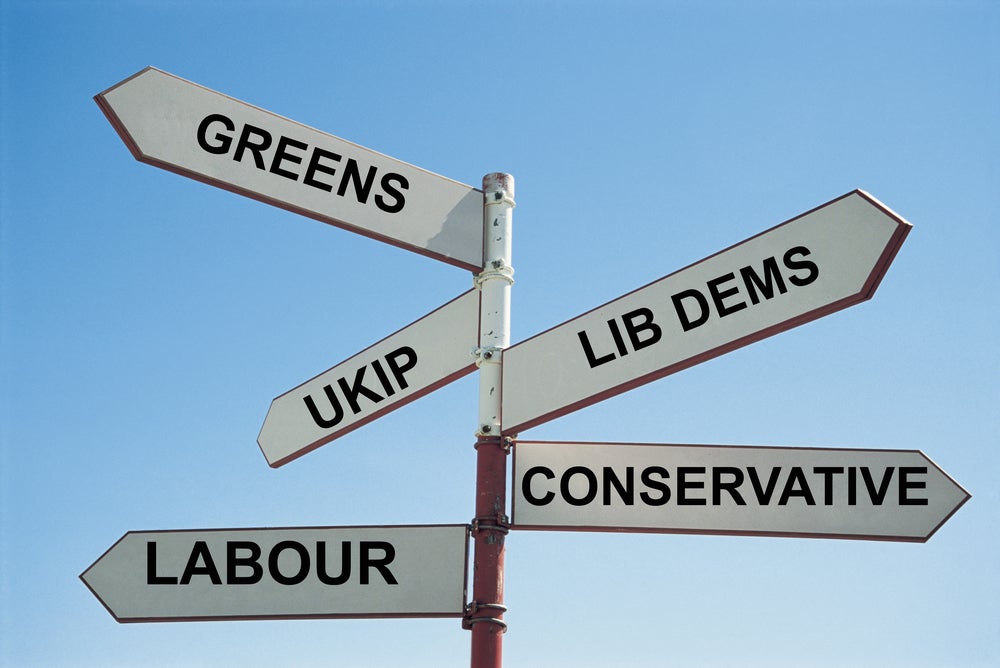
Both Labour and the Tories have released their general election manifestos. Both contain some promising measures to help Britain’s retailers, manufacturers and their delivery and logistics partners. However, the home delivery expert Parcelhero says the devil is in the detail for both manifestos.
The Labour and Conservative parties have now released their general election manifestos. Both contain significant plans for business, retail and transport reforms. The home delivery expert commend, but there also some policies that may do more harm than good.
Parcelhero head of consumer research, David Jinks, said: “Both parties do address many of the issues facing SME’s, retailers, manufacturers and their logistics and courier partners. However, it’s vital that both parties’ pledges, particularly over issues such as taxation, don’t end up penalising retailers that have developed an integrated e-commerce and High Street approach to sales.”
Labour manifesto
Commenting on the Labour manifesto, Jinks said: “Many of the policies in the Labour’s manifesto look promising, particularly in terms of reducing industry’s emissions, improving infrastructure and aiding SME retailers and businesses. The concept of creating Great British Energy to cut bills and boost energy security, paid for by a windfall tax on oil and gas giants, looks promising.
“An Industrial Strategy Council to provide expert advice could also help drive economic growth, providing it is empowered to boost retail and manufacturing and is not just another talking shop.
How well do you really know your competitors?
Access the most comprehensive Company Profiles on the market, powered by GlobalData. Save hours of research. Gain competitive edge.

Thank you!
Your download email will arrive shortly
Not ready to buy yet? Download a free sample
We are confident about the unique quality of our Company Profiles. However, we want you to make the most beneficial decision for your business, so we offer a free sample that you can download by submitting the below form
By GlobalData“Labour’s pledge to establish Skills England, to bring together business, training providers and unions to ensure we have the highly trained workforce, also sounds promising. However, we saw a number of sector skills organisations established under the last Labour government and they did not survive the test of time. It would be good to see permanent funding behind any new skills organisations that all political parties will commit to.
“We agree with Labour that the current business rates system disincentivises investment, creates uncertainty and places an undue burden on our High Streets. We are very pleased to see that, at least in England, Labour will replace the business rates system, so it can raise the same revenue but in a fairer way. However, by saying ‘This new system will level the playing field between the high street and online giants’, Labour is in danger of missing the point that many successful businesses, from Next and John Lewis to small local independent retailers, all realise that an integrated High Street and online policy is best. The High Street and online are on the same playing field, playing for the same team.
“In terms of transport and logistics, Labour’s promise to deliver £1.8 billion to upgrade ports and build supply chains across the UK is also welcome news. Again, we want to see more flesh on the bone of these proposals to see how significant they could be.
“Labour’s pledge to nationalise passenger railway services is interesting. Great British Railways will be responsible for investment, day-to-day operational delivery and innovations and improvements for passengers. However, freight services must not be forgotten or downplayed in any new rail plans. We need to do all we can to take more freight off UK roads and onto rail, to speed up services and reduce emissions. Britain’s private rail freight companies have also proved effective at boosting the switch from road to rail, and it would be concerning to see these also face nationalisation.
“Finally, there is one Labour pledge we are very sad to see. The manifesto says there will be no return to the single market or the customs union. Labour says it will work to improve the UK’s trade and investment relationship with the EU by tearing down unnecessary barriers to trade. However, without a significantly stronger trading arrangement with Europe, it’s hard to see how all the new Brexit red tape that is strangling Britain’s exporters to Europe can be eliminated.”
Conservative manifesto
When it came to the Conservative manifesto, Jinks added: “Again, a number of the Conservative’s manifesto commitments on helping small businesses, speeding up infrastructure and addressing business tax issues will benefit UK retailers, manufacturers and the supply chain and courier companies that support them.
“In terms of start-ups and small businesses, it’s encouraging that the Conservatives say that, for the very smallest businesses – the four million people who are self-employed – they will abolish the main rate of National Insurance entirely by the end of the next Parliament. That’s good news for many microbusinesses.
“However, many policies appear to be a double-edged sword. For example funding 100,000 high-quality apprenticeships for young people, a policy we support, will be paid for by curbing the number of “poor-quality university degrees that leave young people worse off”. That seems to be a decision based on a subjective view of further education.
“The pledge to invest £36 billion in local roads, rail and buses to drive regional growth, including £8.3 billion to fill potholes and resurface roads, is likewise welcome. However, it is to be funded by HS2 savings. A new high speed rail corridor was vital to take the pressure off existing main lines to improve freight capacity.
“The Conservative manifesto claims UK exports are growing, reaching £850 billion last year and service exports are at an all-time high. But goods exporters have had a torrid time dealing with the impact of Brexit, the true extent of which is still only becoming apparent as further border control measures are implemented.
“The manifesto says: ‘We have secured trade deals with 73 countries plus the EU and last year we removed £1 million of trade barriers every single hour’. That may be true, but new trade barriers have been imposed, impacting exports to the EU in many ways. And the manifesto is notably silent on the issue of the vital US trade agreement we were promised as a Brexit bonus.
“Finally, we like the commitment to a business rates support package worth £4.3 billion over the next five years, to support small businesses and the High street. However, the manifesto says this will be achieved by increasing the multiplier on distribution warehouses that support online shopping over time.
“Again, it’s vital any party in Government recognises that successful companies will have physical stores and distribution warehouses to support their e-commerce activities. Cutting High Street rates by increasing warehouse rates is robbing Peter to pay Peter.
“A stable economy will also help the post-Covid realignment of the retail sector that is key to transport & storage companies’ own success. It will be those retailers with strong in-store and online sales that will ultimately triumph in a post-Covid world. Parcelhero’s influential report “2030: Death of the High Street” has been discussed in Parliament. It reveals that retailers must develop an omnichannel approach, embracing both online and physical store sales. “






